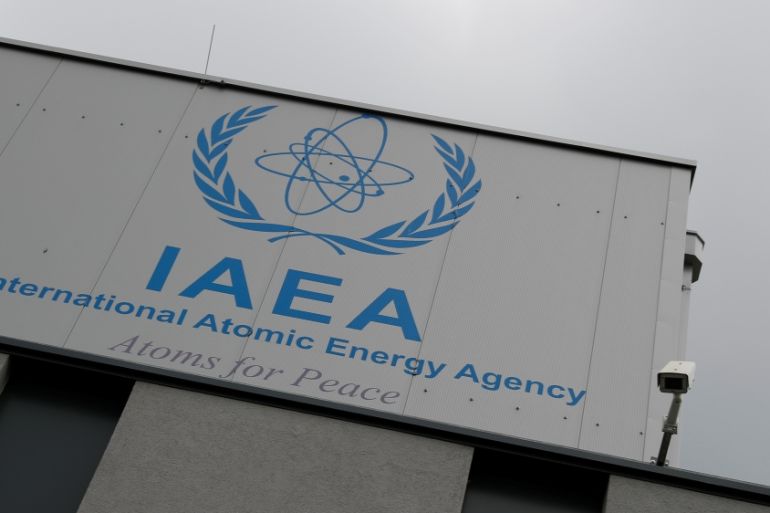UN: Iran continues to comply with terms of 2015 nuclear deal
UN’s nuclear watchdog confirms Iranian compliance with 2015 nuclear deal amid uncertainty over future of the pact.

Iran continues to comply with the terms of its nuclear deal with world powers, despite a US withdrawal from the landmark pact, according to the United Nations’ atomic watchdog.
In a quarterly report distributed to member states on Thursday, the International Atomic Energy Agency (IAEA) said the Islamic Republic had kept to the caps placed on its uranium enrichment levels and enriched uranium stocks as part of the deal, signed in 2015 in Austria’s capital, Vienna.
IAEA inspectors were given access to all sites in the country requiring a visit to verify Iran’s ongoing compliance with the restrictions, the report said.
“The production rate [of enriched uranium] is constant. There is no change whatsoever,” a senior diplomat told reporters.
The Vienna-based UN nuclear watchdog has repeatedly confirmed Iran’s compliance with the deal.
Diplomatic barbs
Under the deal, also known as the Joint Comprehensive Plan of Action (JCPOA), Iran agreed to scale back its uranium enrichment programme and pledged not to develop nuclear weapons in return for the lifting of international sanctions.
Thursday’s report comes amid efforts by the remaining signatories to the deal – Iran, the UK, France, Germany, Russia, China and the European Union – to salvage the agreement after US President Donald Trump‘s withdrawal decision in May.
Trump, who had repeatedly promised to pull out from the pact during his campaign in the lead-up to the November 2016 US presidential election, said at the time that the deal was “defective at its core” and did not do enough to curb alleged threats posed by Iran.
On Thursday, France’s Foreign Minister Jean-Yves Le Drian said Iran “cannot avoid discussions” on the deal, adding the accord remained “essential” for international security and nuclear non-proliferation.
Iran’s Supreme Leader Ayatollah Ali Khamenei threatened on Wednesday to “set aside” the JCPOA if it is no longer in the country’s national interest and set out demands for European powers to meet in order to guarantee its continued involvement in the pact.
Iran’s Foreign Minister Mohammad Javad Zarif, meanwhile, said in a tweet on Thursday that honouring the accord was not Tehran’s “only option”.
If preserving JCPOA is the goal, then there is no escape from mustering the courage to comply with commitment to normalize Iran's economic relations instead of making extraneous demands. Being the party to still honor the deal in deeds & not just words is not Iran's only option. pic.twitter.com/x8t49TegUb
— Javad Zarif (@JZarif) August 30, 2018
Iran has struggled to cope with the financial effect of reimposed US sanctions, signed off on by Trump earlier in August. A second round of punitive measures against Iran’s energy sector is expected in November.
Tehran has demanded the US suspend the restrictions and appealed to the International Court of Justice (ICJ) in The Hague over Washington’s actions, claiming Trump breached a 1955 treaty agreed by the two countries.
The ICJ is expected to take several weeks to decide whether to grant Tehran’s request. A final decision could take years.